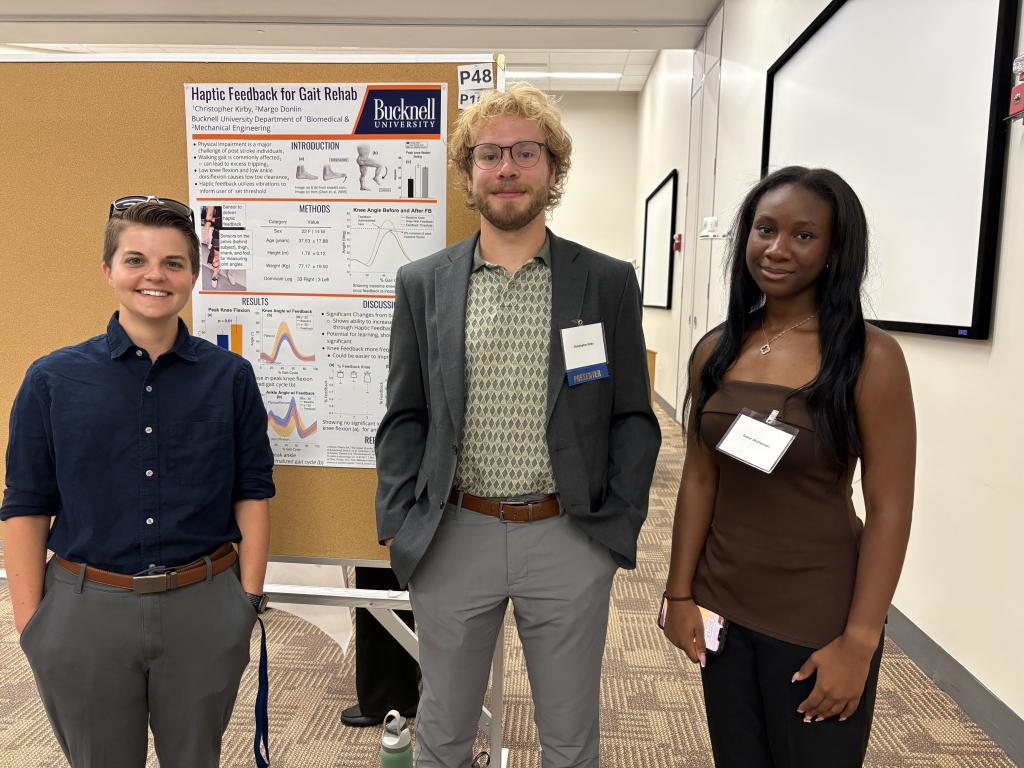
Overview
The Biomechanics and Rehabilitation Lab at Bucknell University is directed by Dr. Margo Donlin (they/them/theirs). The lab consists of students from various backgrounds and in various engineering disciplines who are interested in studying human movement and improving walking function and rehabilitation outcomes.
We use technologies like optical motion capture, electromyography, inertial measurement units, and force plates to measure how people move under various conditions. Most of the lab’s research studies walking, although projects on other movements such as sport-specific motions are always interesting and welcomed.
Mission and Values
Performing High-Quality Biomechanics Research
We examine interesting and robust research questions that will be engaging and informative to other researchers, both internal and external to Bucknell. As a result, we intend to share all research publicly, through presentations and publications, and recognize that the peer-review process strengthens our work and improves our scholarly outputs.
Inclusivity, Diversity, and Collaboration
Biomechanics itself is built on interdisciplinary research ideas from Mechanical and Biomedical Engineering, as well as other sciences like biology and anatomy. As a result, researchers must be open to ideas from all fields, but more importantly from all individuals. Diversity of perspectives makes our lab and our research stronger and more impactful, and we strive to create and maintain diversity. We welcome all individuals regardless of race, ethnicity, gender identity, sexuality, ability, nationality, and more. Teamwork in diverse groups is critical to the success of our lab and the research conducted here, and we encourage collaborations both within the lab and externally.
Kindness and Integrity
We treat others the way we would like to be treated–with kindness and respect, no matter what. We also do the right thing, even when no one is watching. Individuals in this lab are committed to making the world a better place by being examples of good human beings.
Curiosity, Initiative, and Grit
There is no formula for research–instead, researchers must be curious and seek out interesting research questions for themselves. By asking “how…?”, “why…?”, and “can I…?”, researchers learn to challenge what they have been taught to believe and start to expand the bounds of human knowledge.
However, research is a nonlinear process. By recognizing that failure is a natural part of research and learning from those experiences, researchers develop robust troubleshooting skills and a strong desire to persevere through challenging times.
Personal and Professional Growth
We recognize that students come from different backgrounds with different levels of experience, and strive to meet students where they are to develop personalized research and professional goals for individual advancement. We encourage all students to pursue their goals and help them develop the technical skills and confidence that will help them be successful at Bucknell and beyond.